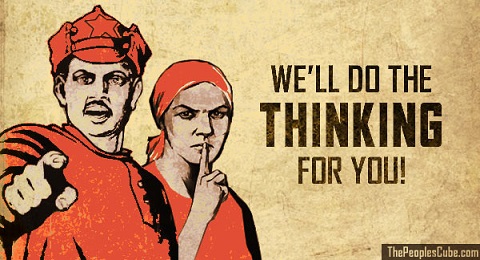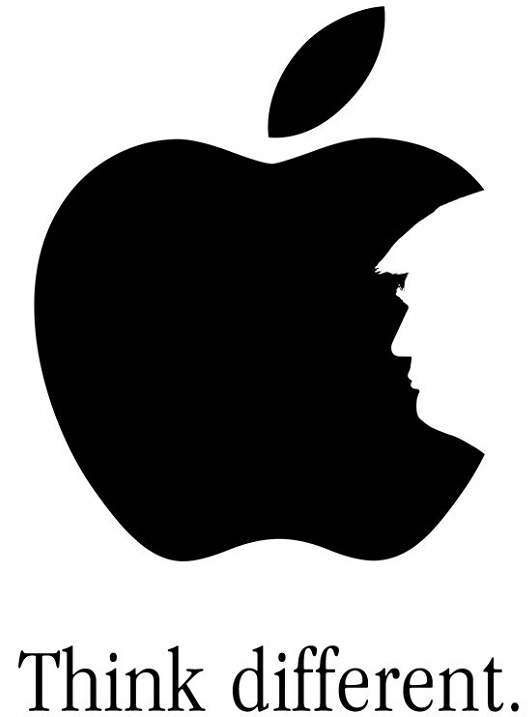If You Have Not Been Taught to Think for Yourself, Then Disinformation is Scary
CTH has encountered criticism for our position on information. Perhaps it is important to step back and explain exactly why we should not be playing by rules established to control us while engaged in the battle of ideas. First, my position:
…”There is no such thing as “disinformation” or “misinformation”. There is only information you accept and information you do not accept. You were not born with a requirement to believe everything you are told; rather, you were born with a brain that allows you to process the information you receive and make independent decisions.”…
 There are only two elements within the public discussion of information, truth and not truth.
There are only two elements within the public discussion of information, truth and not truth.
In an era filled with “fact-checkers” and institutional guardians at the gates of Big Tech, let me explain exactly why it is important not to accept the speech rules of the guards.
When you accept the terms “disinformation”, “misinformation” or the newest lingo, “malinformation,” you are beginning to categorize truth and lies in various shades. You are merging black and white, right and wrong, into various shades of grey.
When your mind works in the grey zone, you are, by direct and factual consequence, saying there is a problem. You are correct; however, this is where people may make a mistake. The problem is supposed to be there.
It is not a solution to the problem to try and remove the grey simply because it takes too much work to separate the white pixels from the black ones. You were born with a gift, the greatest gift a loving God could provide. You were born with a brain and set of natural instincts that are tools to do this pixel separation, use them.
If you define the grey work as a problem you cannot solve on your own, you open the door for others to solve that problem for you. You begin to abdicate the work, and that’s when trouble can enter.
The sliding scale of Pinocchio’s is one of the most familiar yet goofy outcomes.
 Put more clearly, when you accept the terminology “disinformation”, you accept a problem.
Put more clearly, when you accept the terminology “disinformation”, you accept a problem.
The problem is then the tool by which authorities will step in to make judgements.
Speech, in its most consequential form, is then qualified by others to whom you have sub-contracted your thinking.
When you willingly sub-contract information filters to others, you have lost connection with the raw information.
CTH was founded upon the belief that truth has no agenda, nor does it care about you, your feelings, or your opinion of it. It just sits there, empirically existing as evidence of information in its most pure form.
The search for truth, in all things, is the mission objective of this assembly. Often, we don’t like the truth; often, the truth is bitter, cold, challenging and even painful to accept. However, the truth doesn’t care. Information in its most raw form is ambivalent to your opinion. If you struggle to accept these things, that’s when you need grey. The New York Times is not called the “grey lady” accidentally.
Personally, I am an absorber of information – perhaps on a scale that is unusual. But I do not discount information from any form until I can put context to it and see if the information makes sense given all the variables present. When something doesn’t feel right, it’s almost always because it isn’t right.
Often, I find myself struggling in the grey and complex. It is not unusual to spend days researching, digging, clarifying a situation, only to discover the path to finding the truth is in another direction entirely. Erasing everything and starting over is frustrating, but it is genuinely the only approach that works; and often finding truth is supposed to be difficult, that’s why it is rewarding.
In the digital information age, we are bombarded with information. It is easy to be overwhelmed and need to find something or someone who has better skills at separating the black grains from the white ones. All opinions in this quest should be considered; thus, it is important to allow the free flow of information.
I am not necessarily a speech absolutist. There is some language that needs to be constrained if we are to participate in a respectful society, with grandma’s rules and knowing the audience. The CTH has guidelines for comments for this exact reason. However, those constraints need to be based on a set of inherent values. When it comes to information it is important to draw a distinction from speech.
There needs to be an open venue for all information. Unfortunately, when we begin to apply labels or categorization to information, there’s an opportunity for information to be manipulated – even weaponized. Saul Alinsky spent decades pondering the best techniques to weaponize information and speech. Alinsky’s intentions in the endeavor to change society by changing how language and information was used were not good. He devoted his completed rulebook book to Lucifer.
Be careful about anyone saying we need to label or categorize information in order to control or remove speech from the discussion.
You were not born with a requirement to believe everything you are told; rather, you were born with a God-given brain that allows you to process the information you receive and make independent decisions.





Post a Comment